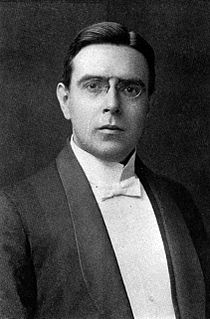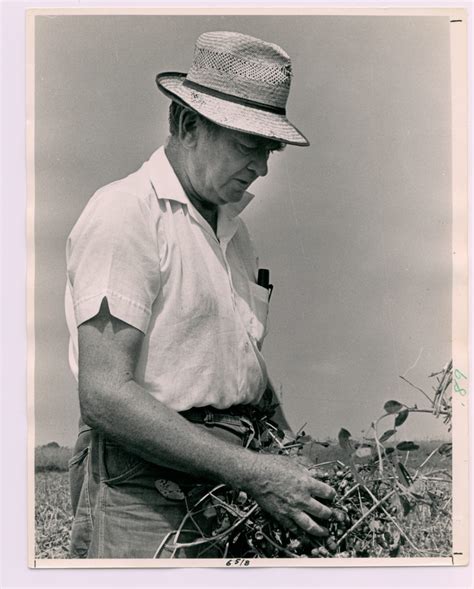A Quote by Jean de la Bruyere
He who excels in his art so as to carry it to the utmost height of perfection of which it is capable may be said in some measure to go beyond it: his transcendent productions admit of no appellations.
Related Quotes
One may not always know his purpose until his only option is to monopolize in what he truly excels at. He grows weary of hearing the answer 'no' time and time again, so he turns to and cultivates, monopolizes in his one talent which others cannot possibly subdue. Then, beyond the crowds of criticism and rejection, the right people recognize his talent - among them he finds his stage.
It is a great mortification to the vanity of man, that his utmost art and industry can never equal the meanest of nature's productions, either for beauty or value. Art is only the under-workman, and is employed to give a few strokes of embellishment to those pieces, which come from the hand of the master.
A man's knowledge may be said to be mature, in other words, when it has reached the most complete state of perfection to which he, as an individual, is capable of bringing it, when an exact correspondence is established between the whole of his abstract ideas and the things he has actually perceived for himself. His will mean that each of his abstract ideas rests, directly or indirectly, upon a basis of observation, which alone endows it with any real value; and also that he is able to place every observation he makes under the right abstract idea which belongs to it.
Stage charm guarantees in advance an actor's hold on the audience, it helps him to carry over to large numbers of people his creative purposes. It enhances his roles and his art. Yet it is of utmost importance that he use this precious gift with prudence, wisdom, and modesty. It is a great shame when he does not realize this and goes on to exploit, to play on his ability to charm.
[God] is perfect not only insofar as He is absolute perfection, defining perfection in Himself and from His singular existence and total perfection, but also because He is far beyond being so. He sets a boundary to the boundless and in His total unity He rises above all limitation. He is neither contained nor comprehended by anything. He reaches out to everything and beyond everything and does so with unfailing generosity and unstinted activity.
It is a truism that as long as man loves but himself and his art he can never attain to the full measure of manhood or reach the sublimest heights of his art. He must seek to love men as brothers and art, not for the sake of art itself, but art as a means toward bringing all men up to that verdant plateau where their souls may be fed in very rejoicing in all that is true, beautiful, and abiding.
Strange is the vigour in a brave man's soul. The strength of his spirit and his irresistible power, the greatness of his heart and the height of his condition, his mighty confidence and contempt of danger, his true security and repose in himself, his liberty to dare and do what he pleaseth, his alacrity in the midst of fears, his invincible temper, are advantages which make him master of fortune.
Art really has its source in the transcendent, the unmanifest field of pure consciousness, which is the non-changing, immortal field of all possibilities...When the awareness of the artist is in tune with this center of infinite creativity, his piece of art breathes fullness of life, nourishes the creator, the artist, and inspires his admirers with waves of bliss.
The poet needs a ground in popular tradition on which he may work, and which, again, may restrain his art within the due temperance. It holds him to the people, supplies a foundation for his edifice; and, in furnishing so much work done to his hand, leaves him at leisure, and in full strength for the audacities of his imagination.
Every man, however hopeless his pretensions may appear, has some project by which he hopes to rise to reputation; some art by which he imagines that the attention of the world will be attracted; some quality, good or bad, which discriminates him from the common herd of mortals, and by which others may be persuaded to love, or compelled to fear him.
True art and true science possess two unmistakable marks: the first, an inward mark, which is this, that the servitor of art and science will fulfil his vocation, not for profit but with self- sacrifice; and the second, an external sign, his productions will be intelligible to all the people whose welfare he has in view.







































